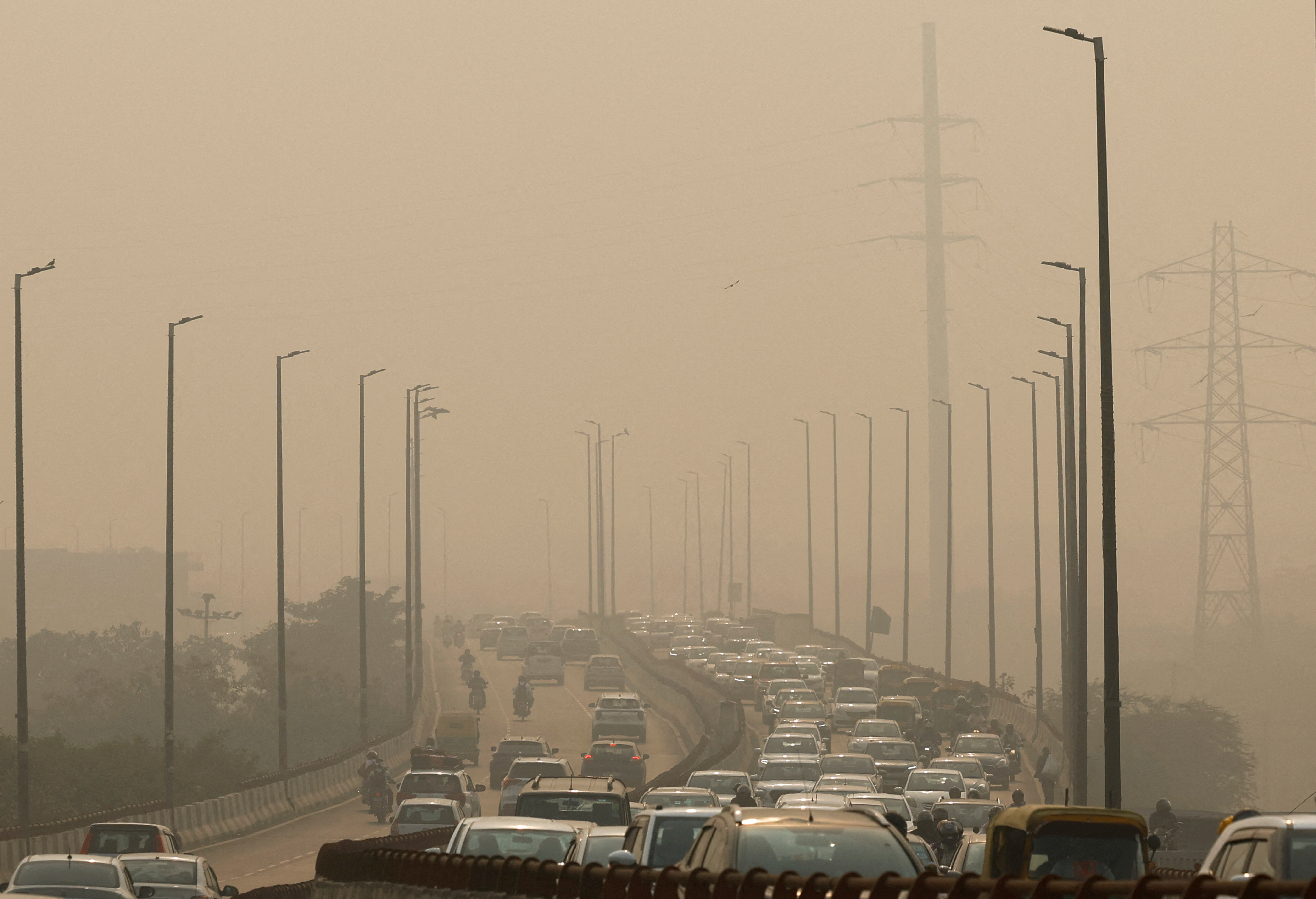
In recent years, the air pollution problem in the Indian capital New Delhi has become increasingly serious and has become the focus of global attention. In November 2024, Delhi's air quality again reached dangerous levels, forcing the local government to take emergency measures to tighten vehicle entry restrictions to mitigate the negative impact of air pollution.
Delhi has long had some of the worst air pollution in the world. According to the World Health Organization, Delhi's Air Quality Index (AQI) regularly exceeds 400, which is classified as "severely polluted". Especially in winter, due to lower wind speeds and falling temperatures, it is difficult for pollutants in the air to disperse, leading to a sharp deterioration in air quality. In November 2024, Delhi's AQI again reached 471, approaching the "emergency" level of 500, posing a huge threat to the health of residents.
In response to the severe air pollution, the Indian government has adopted a series of emergency measures, the most important of which is to tighten vehicle entry restrictions. In November 2024, the Delhi government announced the implementation of an odd-even license plate restriction policy for two weeks from now. First, odd-even license plate restrictions: private cars with license plates ending in an odd number can only drive on odd days, and private cars with license plates ending in an even number can only drive on even days. The measure is expected to take nearly 1.2 million registered vehicles off the road every day. Non-essential trucks banned: All non-essential trucks except essential freight vehicles are prohibited from entering the urban area of Delhi. The move is aimed at reducing pollutants emitted by heavy vehicles. Third, public transport priority: the government encourages citizens to use public transport, and has increased the frequency of bus and subway operations to reduce the use of private cars.
Judging from the current situation, the measures taken by the government have achieved some results. According to monitoring data, Delhi's AQI has decreased and air quality has improved since the restrictions were implemented. Citizens generally report that there are fewer vehicles on the roads and that air quality has improved. In addition, the use of public transport has increased, and some citizens have begun to walk or ride bicycles.
Despite the initial gains, Delhi's air pollution problem still faces many challenges. Such as odd-even license plate restrictions require strict law enforcement to be effective, but Delhi's large number of vehicles and complex traffic conditions have brought great difficulties to law enforcement. Some citizens are resistant to the restrictions, believing that they have brought them inconvenience. Therefore, increasing public awareness of the hazards of air pollution and support for government measures remains an urgent issue.
The Delhi government's traffic restriction measures have aroused wide concern and discussion from all walks of life. Environmental groups and experts generally support the government's move as an effective way to tackle air pollution. However, some citizens and businesses have expressed dissatisfaction with the restrictions, saying that they have affected their daily life and business activities. To this end, the Delhi government has actively explained the necessity and importance of the driving restriction measures through the media and community activities to win public understanding and support.
Delhi's air pollution problem has attracted widespread attention not only at home, but also internationally. The United Nations Environment Program and other international organizations have called on the Indian government to take stronger measures to improve air quality. Some international environmental groups have also provided technical support and financial assistance to help India deal with air pollution. In addition, Delhi's air pollution has also become a hot topic of discussion at international conferences, where delegates from various countries have conducted in-depth exchanges on how to cooperate to tackle global environmental problems.
Delhi's air pollution problem is one of the major environmental challenges facing India and the world. Through a series of emergency measures such as tightening vehicle entry restrictions, the Delhi government has achieved some success in the short term. However, to completely solve the problem of air pollution, it also requires the joint efforts of the government, enterprises and the public to establish a long-term mechanism and take comprehensive measures to fundamentally improve air quality.

Below is the English translation of the text, with precise handling of political terms, consistent sentence structures, and preservation of the original’s analytical tone and logical flow:
Below is the English translation of the text, with precise …
On December 15 local time, Trump took the British Broadcast…
In recent years, the application of artificial intelligence…
According to Yahoo US media reports, the recent remarks of …
After 11 years of waiting in the deep sea, we finally have …
On December 17, 2025, the newly renovated American "Preside…